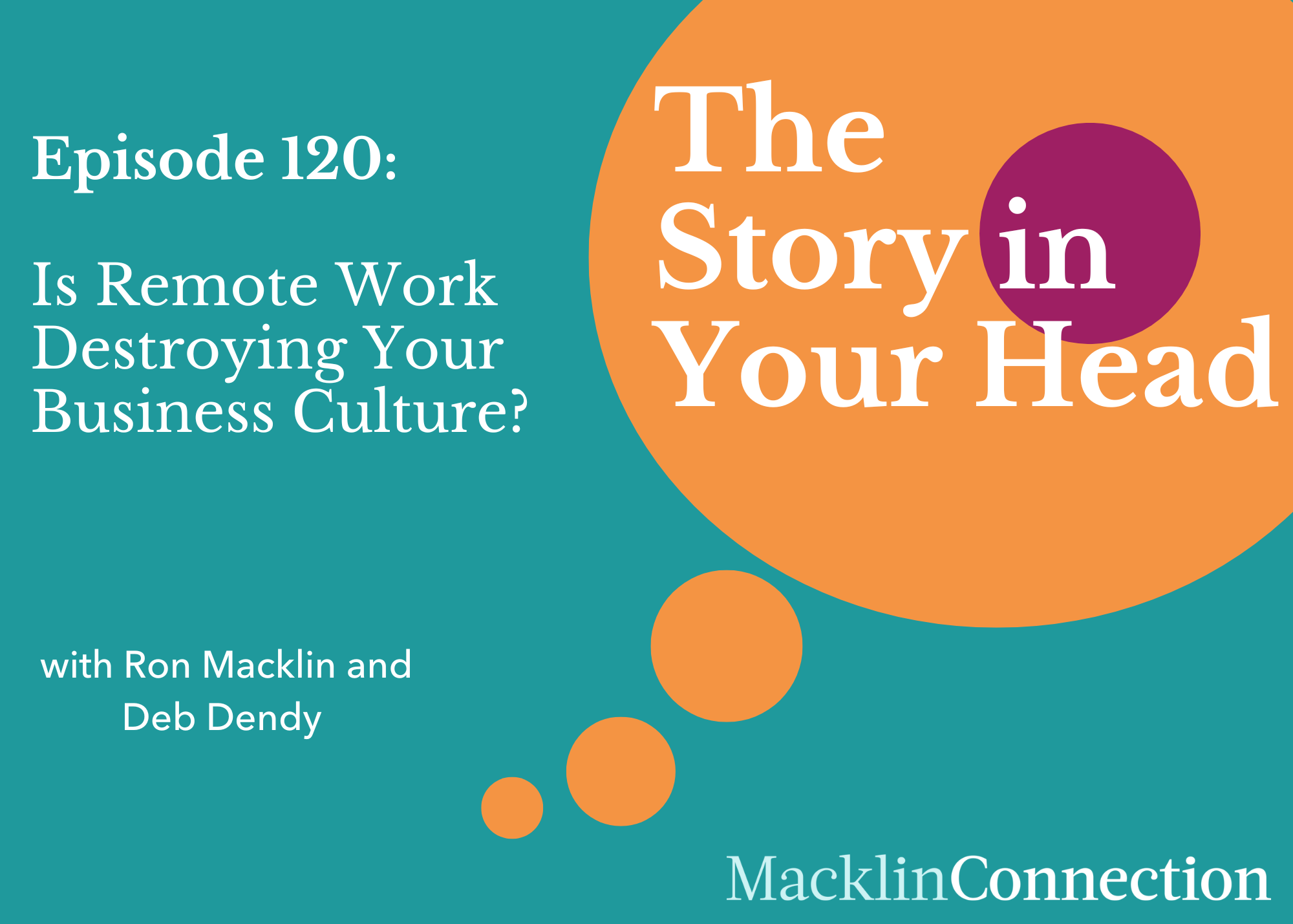Episode Summary
Ron Macklin and Deb Dendy unpack the evolving reality of hybrid work and remote work culture. They explore how leadership, trust, and company culture are being reshaped in this new environment—and why some leaders struggle to adapt. Through honest discussion, they reveal how communication problems and outdated leadership development strategies can sabotage even the most flexible workplaces, and how rethinking leadership training courses may be the key to building stronger, more connected teams.
In today’s rapidly evolving world of work, hybrid work culture is no longer just a future possibility – it’s part of our current and past reality. In this episode Ron and Deb explore how trust, leadership development, and meaningful connection are essential to thriving in a hybrid environment.
What is Hybrid Work?
The word “hybrid” often refers to a mix of in-office and remote work. But as Ron explains, this model existed even before the pandemic – especially within global teams. Hybrid work isn’t new; what’s new is the scale and visibility. As companies navigate this shift, many are being forced to rethink not just logistics, but the very company culture they’re building.
The Pandemic’s Impact on Work Culture
The COVID-19 pandemic fast-tracked the adoption of hybrid work models. Some companies found that productivity actually increased. But as Deb notes, remote work also blurred work-life boundaries, often leading to burnout. This tension reveals the need for more intentional leadership training courses that equip leaders to manage in both physical and virtual spaces.
Leadership Development Program That Builds Trust
Trust is a central theme throughout the conversation. Ron shares that leaders who struggle to trust remote employees often struggle to trust themselves. That’s why leadership development in a hybrid world must move beyond time management or task oversight—it must focus on outcomes, ownership, and genuine trust. Leaders must be coached to focus on results, not location.
Strengthening Connection with Executive Coaching
To help leaders succeed in hybrid environments, executive coaching plays a critical role. Deb shares how regular one-on-one interactions—whether in person or virtual—build the relationships necessary for success. Executive coaching helps leaders create psychological safety, solve communication problems, and foster authentic connection across digital boundaries.
Vision Versus Location
Ron and Deb stress that focusing on where someone works is less important than focusing on why they work. A thriving company culture is built on shared purpose, not physical presence. By aligning teams around vision and values, leaders create environments where people feel connected and motivated—no matter their location.
Final Thoughts on Hybrid Work
Hybrid work is more than a logistical shift—it’s a leadership challenge and a cultural opportunity. To make it work, organizations must rethink leadership training courses, embrace executive coaching, and build systems that eliminate communication problems while deepening trust.
Ron and Deb challenge listeners to rethink the stories in their heads about what work should look like. Is your team simply managing tasks—or are you creating a culture where innovation, trust, and purpose thrive?


